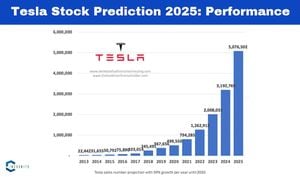The leader of Canada’s most populous province has stated all of the country’s provincial and territorial premiers are advocating for Prime Minister Justin Trudeau's federal government to pursue a bilateral trade agreement with the United States, excluding Mexico. This growing call for change reflects rising concerns about trade dynamics within North America, especially following the uncertainties of another potential Trump presidency.
Ontario Premier Doug Ford recently chaired a conference call with all 13 provincial and territorial leaders, and afterward, he emphasized the need for this agreement, voicing, "There’s a clear consensus among us. Everyone agrees we need to negotiate directly with the U.S. for trade. Mexico should be considered separately." The sentiment among the provincial leaders arises from the perception of unfair trade practices attributed to Mexico, particularly as goods produced using cheaper labor and resources from China are often shipped to the U.S. with 'Made in Mexico' labels, effectively undercutting jobs both sides of the border.
Canada's intricately woven trade relationships with the U.S. are significant, as the American market absorbs about 75% of Canadian exports. Whatever happens politically between the two nations matters greatly. The urgency of these discussions is heightened considering U.S. trade policy could shift once again, potentially under the leadership of former president Donald Trump, who has not divulged whether Canada would be exempt from proposed tariffs which could range from 10% to even higher percentages on foreign goods.
Ford's comments echo concerns held not only by conservatives but also by business and labor leaders across Canada. The complex web of trade agreements, particularly the U.S.-Mexico-Canada Agreement (USMCA), is under scrutiny. Critics argue the current structure may disadvantage Canadian jobs and economic stability as it allows for greater importation of products from China through Mexico, effectively creating trade loopholes.
Trudeau's government has remained somewhat ambivalent about fully separating from Mexico within trade discussions. Deputy Prime Minister Chrystia Freeland acknowledged the U.S. has its own apprehensions about Mexico's role as a 'back door' for cheaper goods entering the North American market. This aligns with U.S. concerns shared with Trudeau’s cabinet concerning China’s influence on trade policies through Mexico. Freeland confirmed this shared anxiety during meetings with both provincial leaders and U.S. officials, signaling this issue is of utmost importance at federal and provincial levels.
Fears of rising tariffs and stricter trade regulations have united leaders from all across Canada. The impending review of the USMCA set for 2026 adds another layer of urgency as Canada must advocate for its interests now, anticipating future negotiations after changes to the trade deal could have ramifications extending far beyond current trade values.
The political aspect of this trade discussion cannot be ignored as the leaders prepared for potential shifts resulting from the U.S. election. Previous dealings with Trump highlighted the fragility of Canada’s reliance on its neighbor to the south for economic stability, heightening the need for proactive negotiations. It was during Trump's prior administration when the renegotiation of NAFTA took shape, shifting power dynamics and sparking constant negotiations between the three North American nations.
Ford expressed eagerness for collaborative efforts between the provinces as they plan to meet again in person for discussions on these pressing issues. A meeting is scheduled for mid-December where trade concerns, particularly those with Mexico, will continue to dominate conversation. Ford added they hope to have participation at the upcoming U.S. governors meeting in February, signaling the broader engagement necessary to address these trade concerns.
While Trudeau has maintained the importance of trilateral relations outlined within the original USMCA framework, the pressure from provincial leaders continues to mount. They argue the stakes of jeopardizing job growth and economic safety within Canada are simply too high to ignore. Already grappling with the current economic climate, the provincial leaders' house of cards hinges on negotiations and trade dialogues transitioning from theory to action.
Mexico’s President, Claudia Sheinbaum, has defended the existing trilateral agreements and accused Trudeau of overlooking the benefits these relations bring to all involved parties. She emphasized during G20 summit interactions how there is the wrong impression of the agreement being one-sided, arguing instead for data-driven discussions to clear misconceptions. Yet, the Canadian leaders are wholly convinced the persistent issues around Mexican trade loopholes must be tackled head-on.
The united front presented by Canada’s provincial leaders may signal the beginning of heightened negotiations. Amidst the paradox of complex international relations, the path forward remains riddled with challenges requiring strategic foresight and decisive action at federal levels. The essence of trade discussions is, as always, to find equilibrium between national interests and maintaining fruitful relations internationally.
With northbound economic aspirations riding heavily on these upcoming talks, Canada stands at the brink of potentially reshaping the dynamics of its trading relationships across North America. It’s not just about keeping Canadian businesses afloat; it’s also about ensuring job protection against the volatile shifts of foreign economic forces.
Unison among provincial leaders highlights the growing concerns over Mexico's role within these trade agreements. These dialogues signal the need for immediate attention to trade dynamics, as the leaders of Canada intend to move forward with solidifying their stance against potentially harmful economic negotiations with Mexico on the sideline.



